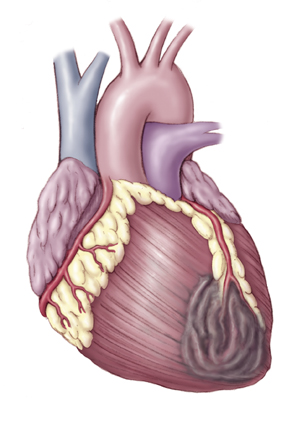High C-Reactive Protein Levels In the Blood Does Not Damage Arteries

For years, scientists believed elevated levels of c-reactive protein (CRP) tended to put people at a higher risk of an heart attack, due to the protein causing arteries to clog. However, a new study conducted on 51,000 people in Denmark absolves the protein of causing damage to the arteries.
Discovered in 1929, CRP is produced by the liver and indicates inflammation in the body. For example, when our tissues experience any kind of trauma, CRP levels in our blood rise. Those with elevated CRP levels tend to be at a higher risk of suffering a heart attack, caused by plaques in arteries around the heart rupturing, including suffering from other health problems like obesity and Type 2 diabetes.
Børge Nordestgaard, a genetic epidemiologist and physician at Copenhagen University Hospital, and colleagues analyzed DNA from 50,816 participants in four large health studies to find whether CRP promotes vascular disease. But, reporting in the New England Journal of Medicine, the team held carrying genes that increase the risk for higher CRP levels does not increase the risk of blood vessel disease. CRP is not responsible for causing atherosclerosis, it only points to it already being there.
However, not everyone agrees with this study result, with Paul Ridker, a cardiologist at Brigham and Women's Hospital in Boston conducting tests to see whether lowering CRP and cholesterol prevents heart attacks. While cardiologist Nilesh Samani of the University of Leicester, UK says the Danish group's genetic strategy to discern the function of high-density lipoprotein, often called good cholesterol shows it has little effect on health. Though, Samani notes CRP is still very useful for identifying people at high risk for heart disease, particularly when other risk factors like cholesterol are missing.